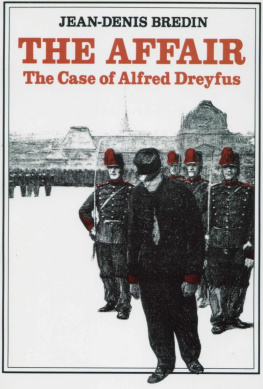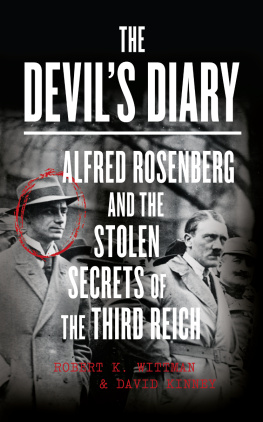Alfred Kotz - SS Leadership Guide
Here you can read online Alfred Kotz - SS Leadership Guide full text of the book (entire story) in english for free. Download pdf and epub, get meaning, cover and reviews about this ebook. year: 2016, publisher: RJG Enterprises Inc., genre: Politics. Description of the work, (preface) as well as reviews are available. Best literature library LitArk.com created for fans of good reading and offers a wide selection of genres:
Romance novel
Science fiction
Adventure
Detective
Science
History
Home and family
Prose
Art
Politics
Computer
Non-fiction
Religion
Business
Children
Humor
Choose a favorite category and find really read worthwhile books. Enjoy immersion in the world of imagination, feel the emotions of the characters or learn something new for yourself, make an fascinating discovery.

- Book:SS Leadership Guide
- Author:
- Publisher:RJG Enterprises Inc.
- Genre:
- Year:2016
- Rating:3 / 5
- Favourites:Add to favourites
- Your mark:
- 60
- 1
- 2
- 3
- 4
- 5
SS Leadership Guide: summary, description and annotation
We offer to read an annotation, description, summary or preface (depends on what the author of the book "SS Leadership Guide" wrote himself). If you haven't found the necessary information about the book — write in the comments, we will try to find it.
SS Leadership Guide — read online for free the complete book (whole text) full work
Below is the text of the book, divided by pages. System saving the place of the last page read, allows you to conveniently read the book "SS Leadership Guide" online for free, without having to search again every time where you left off. Put a bookmark, and you can go to the page where you finished reading at any time.
Font size:
Interval:
Bookmark:

Command and Obedience:
SS Leadership Guide
by Alfred Kotz
Translated from the Third Reich Original
Fhren und Folgen
Copyright 2016 RJG Enterprises Inc.
Table of Contents
First Published 1934
The time of the blazing storm of steel in the First World War had a good side. Where shells burst, there was nobody who did not totally belong to us. Whoever had the desire and opportunity to shirk duty, because he was cowardly, was no longer among us.
Comrades, I know your yearning for everything to go forward. You dont want anybody to march in our ranks who falsifies our community. You yearn for what we once had in the company: a piece of home, a piece of the homeland. You yearn for a company commander of the same type as the front officer. And you fear that something might, very quietly and unnoticed, sneak in, something that is not in accord with our essence; you fear that one day it might be there and cannot be wiped away. You worry that we might not keep what we had when the going was rough. You are concerned that we might not preserve what we achieved with great effort under Hitlers victorious banner.
The time of the receding red flood also had a good side. We all knew what to think of each other. Here, too, nobody was there who did not totally belong to us.
How long has it been, actually, since we stood in one spot for five hours in the great Tennishalle meeting-hall to see our Fhrer, who went from man to man and looked each one in the eye? Those in power had forced the comrades to remove their boots, because they were a danger to the state. But the comrades did not waiver. They stood bare-foot even though it was winter. We had to hide our blue caps, because they were considered a uniform and banned. Outside were police, masses of police. Inside were huge, closely packed columns of silent, faithful men. Hunger brought many a man to his knees, but he did not walk away, unless the medics carried him off. All hearts there beat as one. There were no ifs and buts.
What did Adolf Hitler tell us then? My comrades, one thing I know for sure: There is no coward among you! Those were blessed hours despite the discomfort. We knew that all who stood there belonged together in life and to the death.
Comrades, now you are filled with hope that is remains so. It must and it will remain so, if we stand together in the spirit of the front. We must simply take care together, each in his own place.
The man at the front did not fear death as much as the falseness of life: pretense, insolence, conceit and arrogance. The warrior who steps aside after he has done his share conceals all too easily the braggart as soon as the danger has passed. In 1918 we still sat in the bunkers. The inadequacy from the rear brought what had become unavoidable. All that still sits in our bones. We immediately feel the old fear and the old distrust as soon as something not genuine becomes visible.
But there is a huge difference between the times.
November 1918: We stood before the emergence of the poisonous bloom of parties and corruption. Thus began the decay of state, folk and nation. And a leader was lacking.
January 1933: We experienced the beginning of the end of the party system. Corruption and profiteering suddenly ceased. The state created a solid foundation for the reformation of folk and nation. The best sign of the difference between the years of misery and the new rise is our Fhrer.
We verify: The front is good, for we ourselves know who we are and what is going on, and the leadership is good. If there is something needing correction between these poles, then the Fhrer will master it just like he mastered division and laziness. The greatest task has been accomplished. We still look at Adolf Hitler with complete confidence, always and everywhere ready to help with full effort to finish his huge work and again and again to secure and defend this work with our lives.
This fact remains unalterable. Now let us become clear what must be done so that the final victory is not unnecessarily expensive. We understand each other quickly when I simply describe the Fhrers nature things that you have already so often felt and thought yourselves. What I relate are obvious truths, but still not everybody knows them.
Leadership and Following was not written with the intention of being something new. Serious work had already prepared the ground. The first draft reflected the training lessons for non-commissioned officers in my branch of the service. Our revolutionary activities were actually nothing other than the proof of superiority over the enemy: cleaner, more courageous and strong in our faith in Germany, in Adolf Hitler and his mission. Along the way many things were hard and unspeakably difficult for us, but whatever was difficult for us always becomes easier when we looked at the Fhrer. He was and remained, always and everywhere, an unparalleled example for us. What we endured was nothing in comparison to the burden that this man mastered. Whoever stood for him, who shared sacrifice and danger with us, was a comrade for life and in death: he was a Hitler soldier.
The Fhrers strength again and again won over new followers - from the enemy or from those who hadnt cared. The number of Hitler soldiers grew and grew until the sun finally dawned on the day when not just our small band of Germans were Hitler soldiers, but the entire German folk.
Leadership and Following, however, does not have to change its title because of that. This work remains aimed at Hitler soldiers. For we are all soldiers, soldiers of work or soldiers of arms. Today no decent German is an exception. We all want to be soldierly people, upright like soldiers, genuine and clear, honorable and knightly, hard if necessary, considerate and comradely among ourselves, and faithful to Germany to the death.
Ongoing successes are no coincidence. They emerge solely from the values of character, from diligence and sacrifices. Creation of these values is the goal of education. Successes achieved by the whole are also successes for the members. Therefore, the members are obligated to submit to this education.
The examples in Leadership and Following almost always point into the world of soldiery, because duty and sacrifice find their highest demands there. Their use naturally applies to all other Germans, for the factory head as well as for the worker, for the scholar as well as for the student, for teacher and pupil, for mother and child. One thing is sure: Whatever we do is always but a weak thanks to the men who bled and gave everything for us.
When during the period of struggle, at the request of my comrades, I wrote down a short draft of this instruction, I intentionally did not write down everything I had said, so that the reader would have room to further develop the main ideas. In this new edition I have consciously filled some of these gaps, because Leadership and Following now has a much broader task and is no longer merely a class guideline, rather it is very often simply read. This is not meant to attack the old custom of reading aloud, because the spoken word is superior to the read word. Even in the current form there is enough room for individual style of presentation. The key points remain unchanged; they offer enough material for whoever seeks it.
The picture of the present is like a mosaic whose bright polish does not deny dark colored stones. They remind us of what is still to be done. The past carries the seal of a mighty, heroic time. It is our task to prove ourselves worthy of it; it is our duty to use all our strength to meet the needs of the future.
Next pageFont size:
Interval:
Bookmark:
Similar books «SS Leadership Guide»
Look at similar books to SS Leadership Guide. We have selected literature similar in name and meaning in the hope of providing readers with more options to find new, interesting, not yet read works.
Discussion, reviews of the book SS Leadership Guide and just readers' own opinions. Leave your comments, write what you think about the work, its meaning or the main characters. Specify what exactly you liked and what you didn't like, and why you think so.











